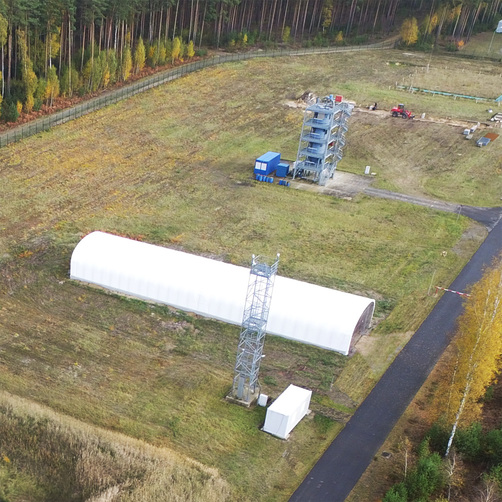
Natural gas vehicles built by IVECO are economical in fuel consumption, clean and reliable.
Source: IVECO
In view of decreasing oil reserves and aiming to achieve energy and climate protection objectives, Liquid Natural Gas (LNG) is gaining importance as an environmentally friendly fuel, especially for heavy commercial vehicles. LNG is liquefied natural gas: it becomes liquid when it is cooled to minus 161 degrees Celsius.
The liquid state reduces the volume of natural gas to 0.06 of its original volume thus achieving an energy density similar to that of diesel. Therefore, LNG is particularly suitable for long-haul freight transport. However, LNG is significantly more climate-friendly: an LNG-powered vehicle produces less pollutants and greenhouse gases than a comparable diesel vehicle. LNG can also be obtained from renewable energy sources such as biomass, wind or solar power.
Investigating accident scenarios in tunnels
However, the increased use of LNG in road traffic is associated with yet unknown risks. In the BAM project "Safety of Transport Infrastructures" (SiVi), accident scenarios involving LNG in tunnels are investigated among others. BAM researchers from the Safety of Structures, Safety of Transport Containers and Constructive Fire and Explosion Safety divisions headed by Dr. Christian Knaust are working together across disciplines to research and answer the relevant questions.
Dr. Knaust’s project team have built a pilot-plant tunnel test facility at the BAM Technical Safety Test Site (BAM TTS). This enables investigations into various scenarios of substance spread for deep cold gases such as LNG at specified conditions and extensive research into the potential consequences such as a fire or explosion. Impacts on personal and structural safety and dangerous goods transport in tunnels are analysed.

Accident scenarios involving LNG are investigated in model tunnels at the Horstwalde Technical Safety Test Site (TTS) in the project "Safety of Transport Infrastructures" (SiVi).
Source: BAM, Department Safety of Structures
Requirements for the safety of tunnels and LNG vehicles
The aim from the research results is to derive recommendations for action on LNG, which can then be incorporated into international regulations (for example, the European Agreement on the International Carriage of Dangerous Goods by Road/UNECE, ADR). For example, new safety distances for LNG vehicles may be specified in order to increase safety.


